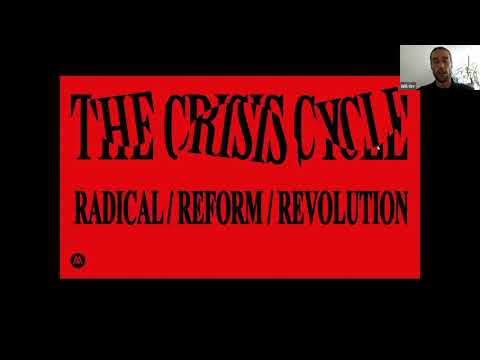
This symposium will explore the political-economic structures underlying the concept of architecture as it developed over the past 50 years. Our disciplinary self-understanding is connected to the slow collapse of welfare-state forms—our idea of ‘radical’ architecture shaped by an ideological shift away from both revolutionary socialism and social-democratic reform. However, the history of the twentieth century shows that large-scale social, economic, and political issues have only been solved through large-scale coordinated responses. We will therefore look at the suppressed historical experience of architecture’s involvement in the vast planning processes of welfare-capitalist and socialist macro-investment efforts.
Contrasting three formations, Radical/Reform/Revolution, this symposium proposes a structural understanding of economic conditions and an engagement with real political agents as the precondition for operative commitment today.
The academic as split political subject
Douglas Spencer, Jane Rendell, Eleni Axioti
Politicised practices in architectural academia carry their own internal tensions. Political agency tends to be understood within the field through radical and critical practices, yet these are themselves conditioned by larger disciplinary and professional institutions. This session will explore the resulting ideological and practical contradictions, most evident when academics attempt to connect to wider political and labour struggles.
The speakers:
Douglas Spencer is Pickard Chilton Professor and Director of Graduate Education at Architecture at Iowa State University. He is the author of The Architecture of Neoliberalism (2016), Critique of Architecture (2020), and has written for Radical Philosophy, Log, e-flux, New Geographies, Volume, Journal of Architecture, Avery Review, and contributed to collections including Architecture Against the Post-Political (2014), This Thing Called Theory (2016), Architecture and Feminisms (2017), Landscape and Agency (2017) and Architectural Affects After Deleuze and Guattari (2020).
Jane Rendell is Professor of Critical Spatial Practice at the Bartlett School of Architecture, UCL. She has introduced concepts of ‘critical spatial practice’ and ‘site-writing’ through her authored books: The Architecture of Psychoanalysis (2017), Silver (2016), Site-Writing (2010), Art and Architecture (2006), and The Pursuit of Pleasure (2002). She works on the Bartlett’s Ethics Commission, (with Dr. David Roberts), and ‘The Ethics of Research Practice’, for KNOW (Knowledge in Action for Urban Equality) (with Dr. Yael Padan).
Eleni Axioti is a researcher and an educator. She is lecturer in contextual studies at the University of the Arts London and teaches history and theory of architecture at Architectural Association. She completed her Ph.D. at the AA on the dissolution of the architecture of the British welfare state. Her work focuses on architectural history in regard to issues of government, social policy, and political economy.